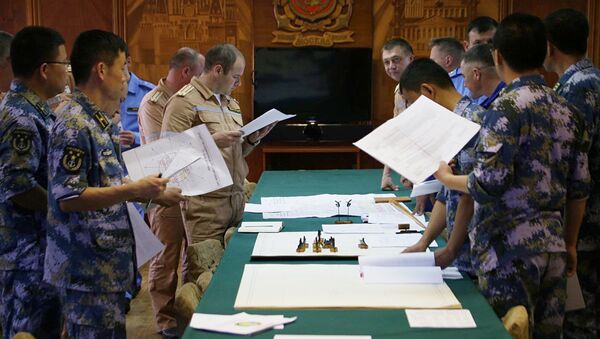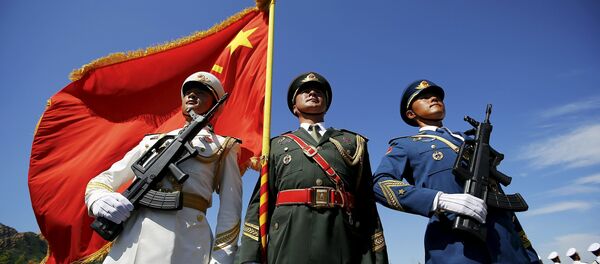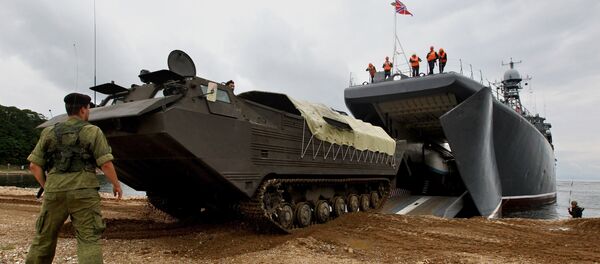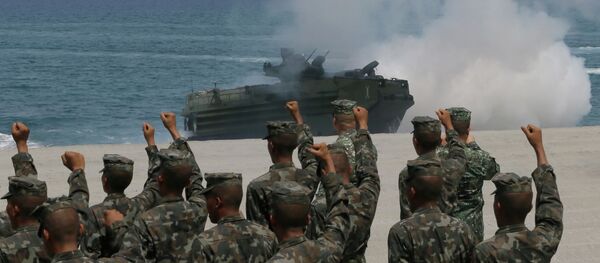The document originated from the 1979 Cold War era doctrine of the military cooperation between Washington and Tokyo aimed against Soviet Russia. The Guidelines were updated in 1997, after the collapse of the USSR. Remarkably, the doctrine has got a second wind after being revised this April.
"The backdrop of the latest revision of the document, under way since 2013, is no doubt provided by 'assertive' China. But there are profound implications for Russia, too. To be sure, Japan is now going to play a more active role in supporting the US-led operations globally," Bhadrakumar elaborated in his article for Asia Times.
"Specifically, the Guidelines emphasize the importance of US-Japan cooperation in the field of ballistic missile defense or the BMD. The US, in fact, has begun deploying the BMD system in Japan," the Indian expert stressed.
"Japan foots the bill. Washington and Tokyo may take the line that they do not envision Russia as a threat to Japan and that the US-Japan alliance does not target Russia as such, but in the present climate of Russian-American relations, Moscow is not going to be lulled into complacency," Bhadrakumar remarked.
To complicate matters further Japanese Prime Minister Shinzo Abe has pushed ahead new legislation that would allow Japanese troops to fight overseas, for the first time since the Second World War.
In light of this the Kremlin has carried out a series of steps aimed at ensuring Russia's security.
The leaders agreed to form a common economic space on the continent through linking the Russian-led Eurasian Economic Union with the China-led New Silk Road project.
The expert pointed to the fact that the two powers also agreed to hold joint military drills in the Asia-Pacific.
These are the signs of substantial reconfiguration in the region, according to the Indian experts.
In addition, regardless of Japan's vocal displeasure, Russia has sped up modernization of military and civilian infrastructure on the Kurile Islands.
"Today, the Russian build-up around the Kurile Islands has a much bigger calculus insofar as it is in anticipation of the full-scale opening of the so-called Northern Sea Route… Russia's Arctic policy demanded that the Kurile Islands get elevated to the frontlines of the country's defense and national security. Russia can be expected to steadily strengthen its military presence around the Kurile Islands and develop its infrastructure and port facilities, no matter what it takes," Bhadrakumar elaborated.
The expert remarked that Russia's strong strategic presence in the Arctic provides the country with an unbeatable advantage: access to all the oceans of the world.
Russo-Japanese relations are obviously getting cooler, he noted, while Sino-Russian cooperation is on the rise.
"Putin's forthcoming visit to Beijing next week becomes an important signpost of the emergent strategic realignment in the Far East," Bhadrakumar concluded.







